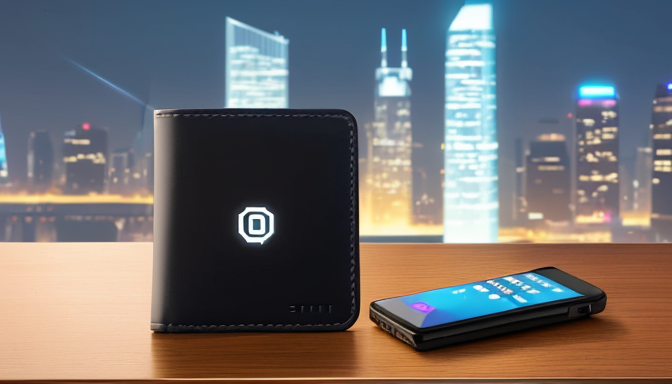In today’s fast-paced digital world, understanding crypto wallets is essential for anyone looking to dive into the exciting realm of cryptocurrency. Think of a crypto wallet as your digital bank account, but instead of storing dollars, it holds your valuable digital assets like Bitcoin, Ethereum, and even NFTs. With the rise of the decentralized web ecosystem, knowing how to manage these wallets can be the difference between securing your wealth and losing it to the wild west of the internet.
So, what exactly are these wallets? They come in various forms, each tailored to different needs. For instance, hot wallets are like the trendy cafes where you can quickly grab a coffee—they’re online, easy to access, and perfect for everyday transactions. On the other hand, cold wallets are like a safe in your home, providing a more secure option for storing your assets offline. This makes them less vulnerable to hacking, but a bit less convenient for quick trades.
As you navigate this landscape, keep in mind that the security of your digital assets is paramount. Features like encryption and two-factor authentication are your best friends in keeping your wallet safe. Just like locking your front door at night, these measures are essential to protect your investments. In a world where digital threats lurk around every corner, being informed and proactive about your crypto wallet choices can help you thrive in the exciting world of blockchain and NFTs.
Types of Crypto Wallets
Understanding the different types of crypto wallets is crucial for choosing the right one for your needs. Think of crypto wallets as your digital bank account, but instead of holding cash, they store your cryptocurrencies. There are two primary categories: hot wallets and cold wallets. Each comes with its own set of advantages and disadvantages that cater to different user requirements.
Hot wallets are connected to the internet, making them incredibly convenient for everyday transactions. They allow you to access your funds quickly, which is perfect for active traders or those who frequently buy and sell cryptocurrencies. However, this convenience comes at a cost: being online means they are more vulnerable to hacks and cyber threats. Popular examples include web wallets and mobile apps.
On the other hand, cold wallets are offline storage solutions, offering a higher level of security for those who wish to hold their assets long-term. Imagine storing your valuables in a safe rather than keeping them in your pocket. Cold wallets, such as hardware wallets and paper wallets, are less susceptible to online attacks, making them ideal for serious investors. However, the trade-off is that accessing your funds can be less convenient.
In summary, when selecting a crypto wallet, consider factors like security, accessibility, and your investment goals. Whether you choose a hot wallet for quick access or a cold wallet for security, understanding these types will help you navigate the ever-evolving landscape of cryptocurrencies.

Security Features of Crypto Wallets
When it comes to managing your digital assets, security is not just an option; it’s a necessity. Imagine locking your front door and then leaving the key under the welcome mat—sounds risky, right? That’s exactly how it feels if you don’t prioritize the security features of your crypto wallet. There are several robust security measures that can help protect your investments in the ever-evolving cryptocurrency landscape.
First and foremost, let’s talk about encryption. This is the digital equivalent of a vault. Encryption scrambles your data, making it unreadable to anyone who doesn’t have the key. It’s like having a secret code that only you and your trusted allies understand. Without encryption, your private keys and transaction details could be exposed to malicious actors.
Another essential feature is two-factor authentication (2FA). Think of it as a double lock on your door. Even if someone has your password, they still need a second piece of information—like a code sent to your phone—to access your wallet. This significantly reduces the risk of unauthorized access.
Moreover, following best practices can further enhance your security. Always update your wallet software, use strong, unique passwords, and consider hardware wallets for long-term storage. These physical devices keep your crypto offline, making them less susceptible to online hacks.
In the world of blockchain, where transparency meets anonymity, understanding these security features is crucial. They act as the shield protecting your investments from the unpredictable nature of the decentralized web ecosystem.
Frequently Asked Questions
- What is a crypto wallet?
A crypto wallet is a digital tool that allows you to store, send, and receive cryptocurrencies. Think of it as your online bank account but specifically for digital currencies!
- What are the different types of crypto wallets?
There are mainly two types of crypto wallets: hot wallets and cold wallets. Hot wallets are connected to the internet, making them convenient for daily transactions, while cold wallets are offline and offer enhanced security for long-term storage.
- How secure are crypto wallets?
Security varies by wallet type, but many offer robust features like encryption and two-factor authentication. Always follow best practices, like using strong passwords and enabling additional security measures!
- Can I lose my cryptocurrency?
Yes, if you lose access to your wallet or your private keys, you could lose your cryptocurrency forever. It’s crucial to back up your wallet and keep your recovery phrases safe!
- Are crypto wallets free to use?
Many wallets are free, but some may charge fees for transactions or premium features. Always check the fee structure before choosing a wallet!